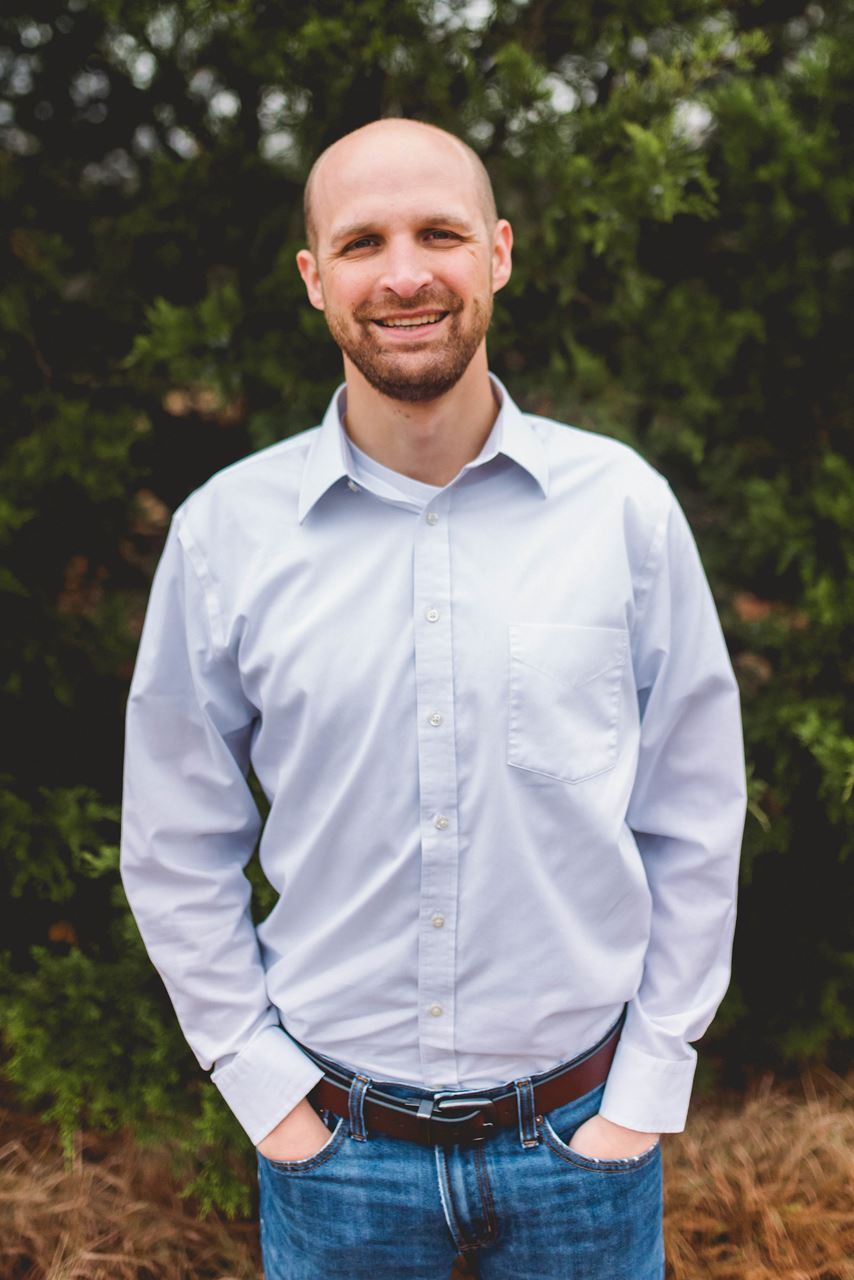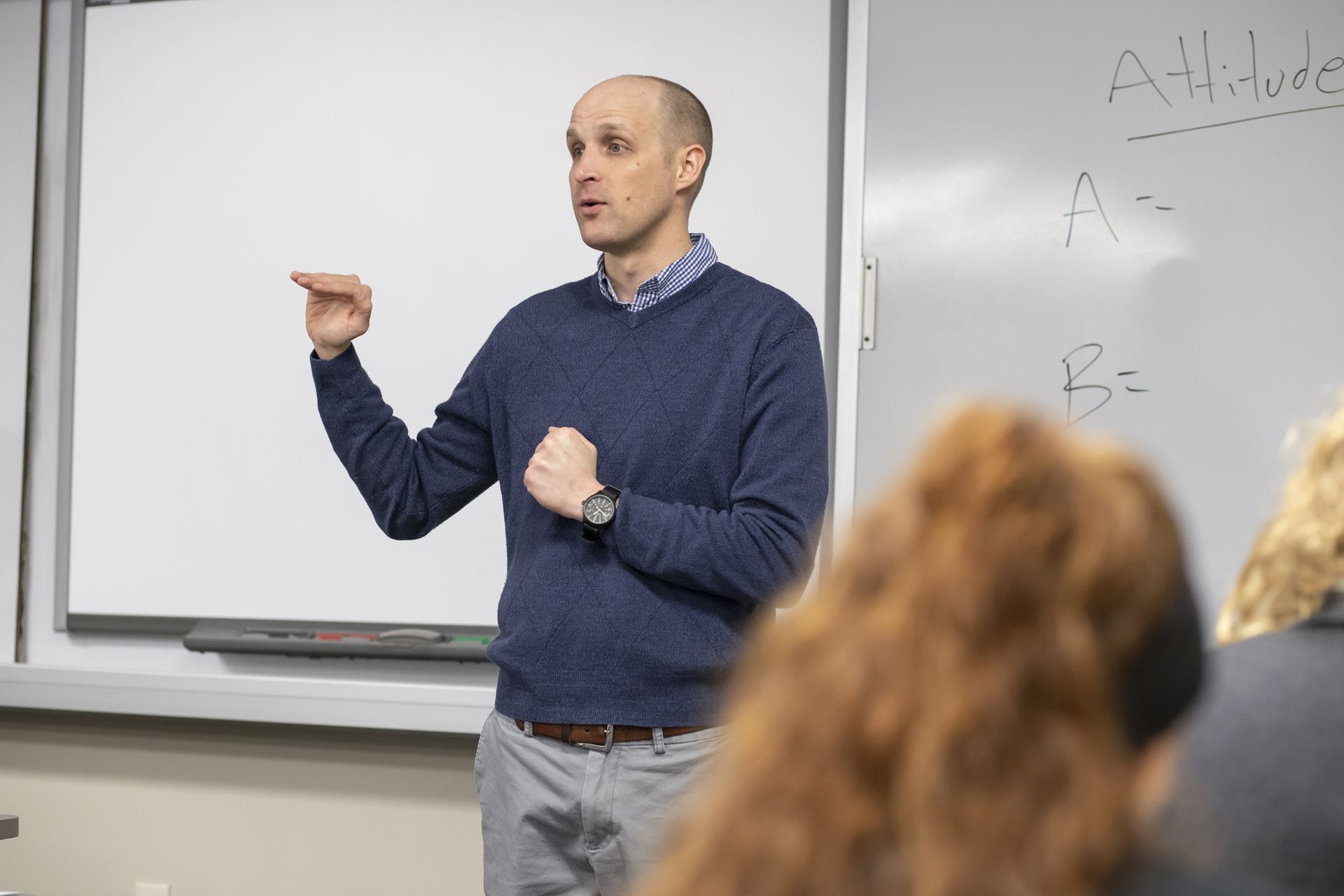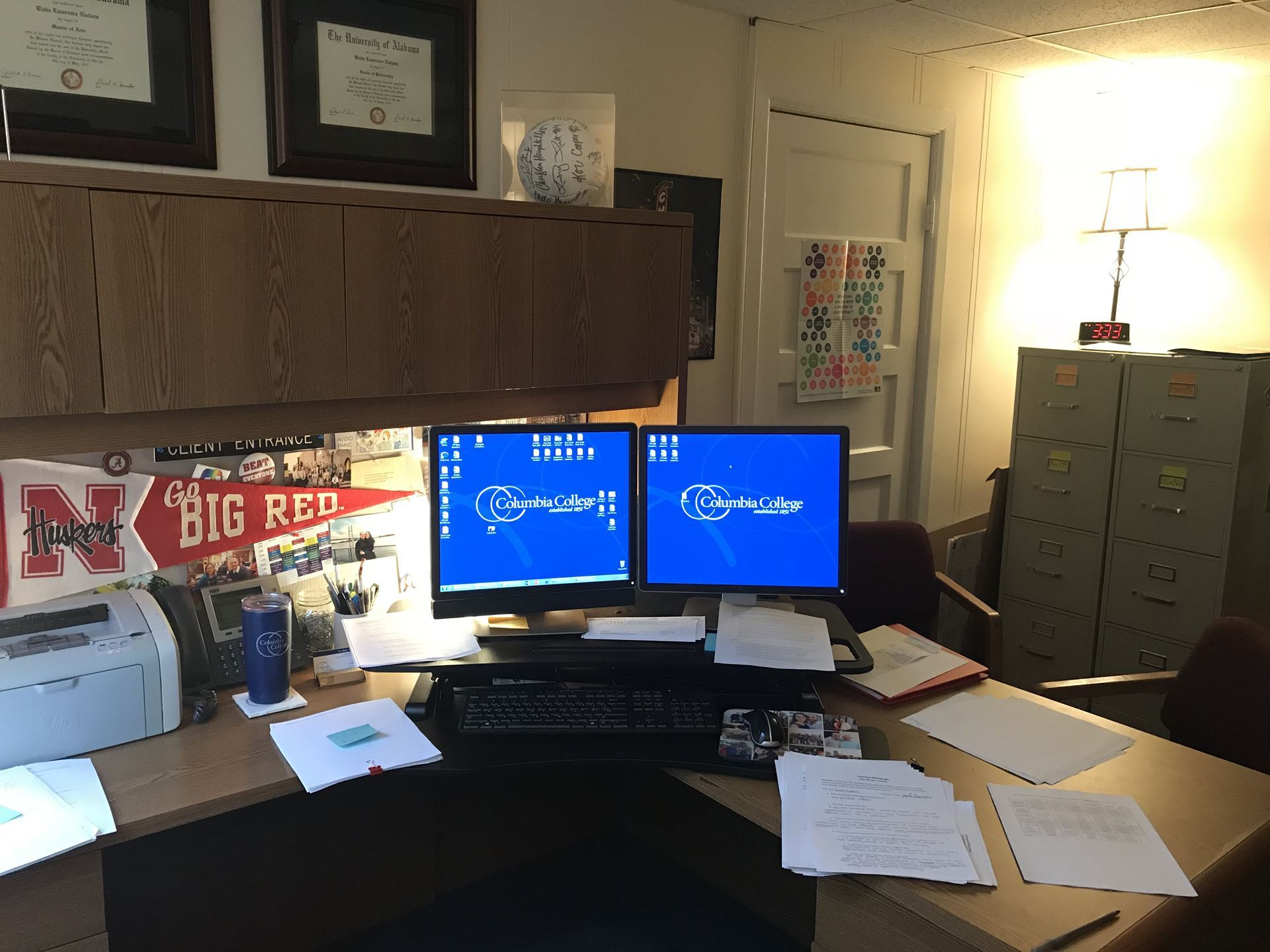 School name: Columbia College
School name: Columbia College
Type of school: Small liberal arts school
School locale: Columbia, MO
Classes you teach: General Psychology, Lifespan Development, Research Methods, Social Psychology, Cognitive Psychology, Capstone Research, and Writing for the Social Sciences.
Average class size: 20-30 students
What’s the best advice about teaching you’ve ever received?
In one of the first courses I TA’ed as a graduate student, the major professor gave me a Louis Pasteur quote about “chance favoring only the prepared mind.” The quote confused me at first, but I quickly realized how fast things moved inside the classroom and how quality-teaching moments were products of being prepared when students asked difficult questions.
What book or article has shaped your work as a psychology teacher?
Chickering and Gamson’s Seven Principles for Good Practice in Undergraduate Education. I read this when I started teaching and have aspired to implement these practices ever since.
 Briefly tell us about your favorite lecture topic or course to teach.
Briefly tell us about your favorite lecture topic or course to teach.
General Psychology is one of my favorites. It’s the doorway to the rest of the major and because it has so many topics, I never get bored. I bring a lot of passion and enthusiasm into this course and love hearing students say they took a psychology course to satisfy a requirement but enjoyed it so much that they signed up for more.
Briefly describe a favorite assignment or in-class activity.
Whenever I lecture on Latané and Darley’s (1970) decision making model for helping behavior, I always recruit a student to help me create a scene at the beginning of class (e.g., falling down, spilling a stack of papers, dropping a cup, etc.). I try something different every year and I’m amazed by students’ reactions. It makes for a great talking point later in the lecture when I post an image of my student accomplice and ask why so few of their classmates got out of their seats to help (diffusion of responsibility!).
What teaching or learning techniques work best for you?
Retrieval practices! I read Brown, Roediger, and McDaniel’s, Make it Stick, and was immediately convinced I should implement low-stakes retrieval practice activities in all of my courses. Now, I can’t go more than a few days without engaging students in some type of retrieval practice.
 What’s your workspace like?
What’s your workspace like?
Most of the time, my office is relatively clean. However, this is not always the case around the middle and end of the semester (see attached photo for proof).
Three words that best describe your teaching style.
Energetic. Active. Fun.
What is your teaching philosophy in 8 words or fewer?
Always have fun with the material.
Tell us about a teaching disaster (or embarrassment) you’ve had and how you dealt with the situation.
At one point during my first year as a faculty member, the power went out in my building 15 minutes before I had to teach. My course was in a windowless, basement classroom and I had to think fast if I still wanted to lecture about attachment theory. Instead of canceling class, students illuminated their cell phones and I taught the entire lecture by getting students to role-play Ainsworth’s Strange Situation Task. The class got a kick out of the tall student athlete from the football team playing the role of the baby. (The guy did a great job!) Every semester since, I incorporate some element of role-play when discussing this topic.
What is something your students would be surprised to learn about you?
I was quite the runner in college and graduate school, completing 10K’s, half-marathons, marathons, as well as an Ironman triathlon. Exercising helped me manage all the stress that came with school.
What are you currently reading for pleasure?
I attended a Supreme Court session last summer and got hooked on all things Supreme Court. I started listening to Radiolab’s podcast, More Perfect, and even bought Justice Sotomayor’s autobiography, My Beloved World, in the Court’s bookstore. I get in a few chapters whenever I have “free time” during my breaks.
What tech tool could you not live without?
ZipGrade completely changed how I administer and score exams. Since adopting this tool, I haven’t looked back.
What’s your hallway chatter like? What do you talk to colleagues about most (whether or not it is related to teaching/school)?
Mostly, my conversations are teaching focused. My colleagues do amazing work and I’m always fascinated to learn more about their approaches to teaching. Their stories inspire me to continue dreaming big in my own courses.
